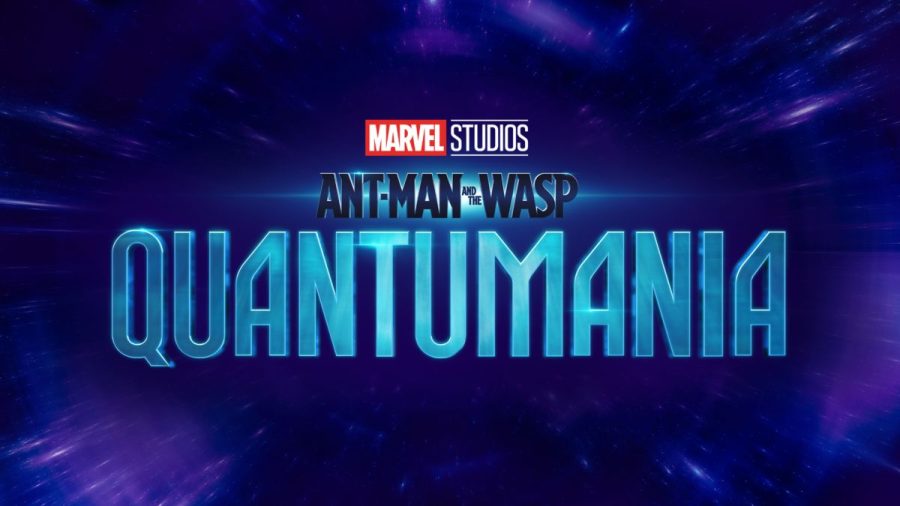Into the Marvelverse: “Ant-Man and the Wasp: Quantumania” sets up the next generation of Marvel heroes
The latest “Ant-Man” installment bends time and rakes in the cash while introducing us to some key players in the coming Marvel flicks
“Ant-Man and the Wasp: Quantumania” is the latest installment from Marvel, which is owned by Disney
March 23, 2023
It was almost four years ago when audiences sat tensely in their seats, vision impaired by the tears as they watched their favorite actors’ signatures scribble from left to right across the big screen, marking the final time we would see this group of actors together. Since Marvel’s cinematic masterpiece that is the “Infinity Saga,” they have shifted to cover significantly larger scaled projects taking their fans all across the universe, and more than one at that.
Although this enormous aspect has been beyond entertaining, it’s time to step back and get smaller. Premiering almost five years since their first partner movie, “Ant-Man and the Wasp: Quantumania” takes viewers to a realm like no other, the Quantum Realm.
The latest “Ant-Man” installment hit theaters last month, and while it only has a lowly 47% rating from Rotten Tomatoes critics, it appears to be an audience favorite, hovering right around 83%. With a reported budget of $200 million, it has largely been considered a success for Marvel; as of its second week in theaters (February 26), it pulled in $363.6 million, according to movie news site Deadline.
The film takes us into the family life of Ant-Man played by Paul Rudd, where we get to see the healing process that this family is enduring after the aftermath of “Avengers: Endgame.” It is also revealed that Janet Van Dyne (Michelle Pfeiffer) does not want to resurface research or the topic about the Quantum realm. After being stuck there for 30 years, she has experienced a lot, yet she doesn’t speak about it. Her refusal to voice her experience in the realm is concerning as she is aware how important her testimony could be to the future of her husband’s Hank Pym (Michael Douglas), and the future of technology as a whole.
The movie was an interesting concept being a Marvel movie. The film served the purpose of introducing another next-generation superhero being Cassie Lang, as each of the other recent installments have done. Although it was Cassie’s Lang debut movie as a superhero it also reintroduced the main supervillain into the story line, Kang the Conqueror, officially kicking off what will be known as “The Kang Dynasty.”
Kang’s initial character, from a psychological aspect, potentially reveals how this character came to be. In the comics, Kang becomes the mass conqueror after his younger self, Nathaniel, travels in time and tries to prevent becoming Kang the Conqueror. He was first introduced in the first season of “Loki” but was killed minutes after. From the series, it’s known that the particular Kang that was killed on screen acted as a pinnacle point in the universe for all that has to do with time. Nicknamed “He who remains” he quite literally is the single person who remains after the end of time. His character consists of many layers each piling a confusing aspect that viewers have to grasp too quickly.
Reverting back to the idea of the Quantum Realm, Kang’s inability to escape this realm is imperative to this movie saga. Stated in the movie this realm is the only thing that can “contain” what he is. A place that is able to imprison someone who “remains outside of time” is one where time does not progress itself, this makes the Quantum Realm hypothetically able to suppress time, or progress time directly separate from the main timeline. From a philosophical view, this realm would not be able to completely suppress the progression of time as discovered by Albert Einstein, “time can not exist without space” and vice versa. The realm can’t exist without time because at what point does it exist? This resurfaces the idea of Kang or “he who Remains” existing outside of time, which in reality he is not existing outside of time but merely in a separate timeline than what we have been watching the past decades. Nonetheless, the concept of time and time travel will be heavily tested in the upcoming MCU projects and I am excited to see how Marvel continues to bend, and break the natural laws of the universe.
Judging the movie by what it was meant to be, I truly enjoyed it. It served its purpose of introducing Cassie Lang into the MCU as a superhero whilst experimenting with the concert of time and Kang’s Character. Although it didn’t have anything special with it that token Marvel movies have, it set up the further Marvel projects with a rich storyline that can potentially span over thousands of years. A new team is forming and I think that we will be seeing the convergence of these next generation superheroes. I would recommend any superhero fan go and watch this movie, because although it is sad to think about, moving into the next generation of heroes means we will be saying goodbye to the ones who laid the foundation.






